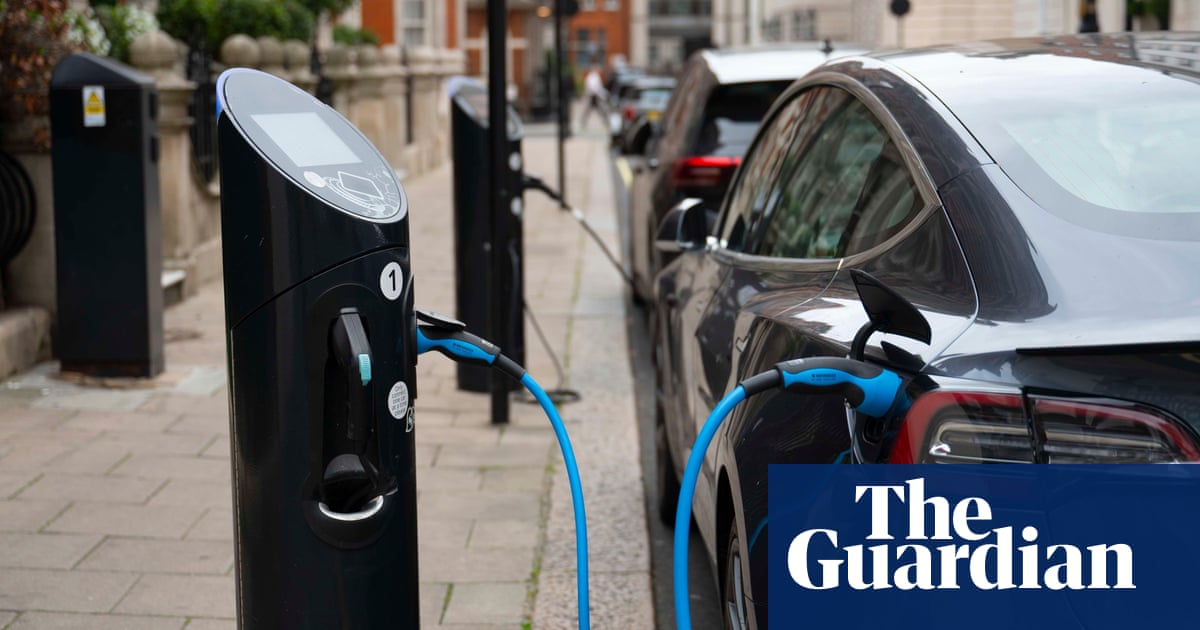Hybrid and electric cars are more likely to strike pedestrians than petrol or diesel vehicles, particularly in towns and cities, according to an analysis of British road traffic accidents.
Data from 32bn miles of battery-powered car travel and 3tn miles of petrol and diesel car trips showed that mile-for-mile electric and hybrid cars were twice as likely to hit pedestrians than fossil fuel-powered cars, and three times more likely to do so in urban areas.
Why eco-friendly cars are more hazardous is unclear, but researchers suspect a number of factors are to blame. Drivers of electric cars tend to be younger and less experienced, and the vehicles are much quieter than cars with combustion engines, making them harder to hear, especially in towns and cities.
“Electric cars are a hazard to pedestrians because they are less likely to be heard than petrol or diesel cars,” said Phil Edwards, first author on the study and professor of epidemiology and statistics at the London School of Hygiene & Tropical Medicine. “The government needs to mitigate these risks if they are going to phase out the sale of petrol and diesel cars.”
“If you’re moving to an electric car, remember it’s a new kind of vehicle,” Edwards added. “They are much quieter than the old-fashioned cars, and pedestrians have learned to navigate roads by listening for traffic. Drivers of these vehicles need to be extra cautious.”
Road traffic accidents are the leading cause of death among children and young adults in the UK, with pedestrians making up a quarter of all deaths on the roads.
In 2017, a US Department of Transportation report found that electric and hybrid cars posed a 20% higher risk to pedestrians than petrol and diesel cars, and a 50% higher risk during low-speed moves, such as turning, reversing, starting into traffic and pulling to a stop.
Edwards and his colleagues studied UK travel and road accident data from 2013 to 2017. Because of an archiving problem, data from 2018 onwards is not available. Their analysis included 916,713 casualties of which 120,197 were pedestrians. More than 96,000 had been hit by a car or taxi.
Most vehicles on the road are petrol or diesel and these were involved in three-quarters of pedestrian collisions. But for the same distance travelled, battery-powered cars were more dangerous. The average annual pedestrian casualty rate per 100m miles travelled was 5.16 for electric and hybrid cars compared with 2.4 for petrol and diesel cars, according to the study in the Journal of Epidemiology and Community Health.
In rural settings, battery-powered cars were no more dangerous than petrol or diesel, but in towns and cities they were three times more likely to collide with pedestrians, the researchers found.
Since July 2019, all new hybrid and electric vehicles sold in Europe have been required to have an acoustic vehicle alerting system that emits sound when the car is travelling slowly, but there are hundreds of thousands of electric cars on the road without the devices. “If government made sure these systems were installed in all electric vehicles and retrofitted them to older electric cars, that would be a good start,” Edwards said, adding that the Green Cross Code also “probably needs updating”.
Nicola Christie, professor in transport safety at UCL, said people relied on sound to judge the presence, speed and location of vehicles. “When these cues are missing this could be very problematic for people in busy urban areas. The problem could be exacerbated for people with poor visual acuity or for children who find it hard to judge the speed and distance of vehicles,” she said.
But a difficulty in hearing electric cars is not the only problem. Electric cars tend to have swift acceleration and are usually much heavier, with some weighing twice their petrol equivalent, making stopping distances longer. “If the government is planning to promote a transition to electric cars, then that will bring some risk to pedestrians unless we take care of this,” said Edwards.







